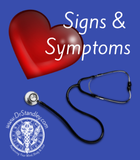The best way to get Vitamin D is through exposure to sunlight. Our ability to manufacture Vitamin D from sunlight decreases with age. Deficiencies of Vitamin D can interfer with the utilization of calcium and phosphorus in bone and tooth formation. It can cause irritability and weakness. When severe deficiencies are apparent, Rickets may be common especially in young children, which is Osteomalacia in adults. Vitamin D is soluble in fats and organic solvents. It is relatively stable under refrigeration and it can be stored in the liver. Vitamin D is often associated with Vitamin A. Important in treating osteoporosis, rickets and hypocalcemia while also enhancing the immune system.
It helps to support healthy bones and calcium and phosphorus absorption from the intestinal tract. Helps to cure rickets. Supports healthy vision. Helps produce blood plasma and regulates the metabolism of minerals. It helps to stabilize heart action and the nervous system. Aids in the normal clotting of blood.
None if taken as recommended. Toxicity may occur from amounts over 65,000 I.U.'s over a period of several years. Vitamin D should not be take without calcium. Any intestinal disorders, liver or gallbladder disorders can interfer with the absorption of Vitamin D. The use of some cholesterol lowering drugs, antioxidants, hormones, mineral oil or steroids may interfer with absorption of Vitamin D. Thiazide diuretics may upset the calcium and Vitamin D ratio.
Should be taken with Calcium
May be taken daily. Some cholesterol-lowering drugs may interfere with absorption.
Alfalfa and their sprouts, avocado, bee pollen, butter, carrots, chickweed, comfrey, cod liver oil, dairy products fortified with Vitamine D, egg yolk, fish liver oils, fish having fat distributed throughout its flesh, garlic, halibut, herring, leafy greens, lemongrass, liver, mackerel, marshmellow root, milk, mushrooms, oatmeal, oysters, salmon, sardines, seeds, sunflower seeds, sweet potato, tuna, vegetable oil and yeast.
Best source is the sunlight.


































 VITAMIN D - (cholecalciferol or calciferol)
VITAMIN D - (cholecalciferol or calciferol)